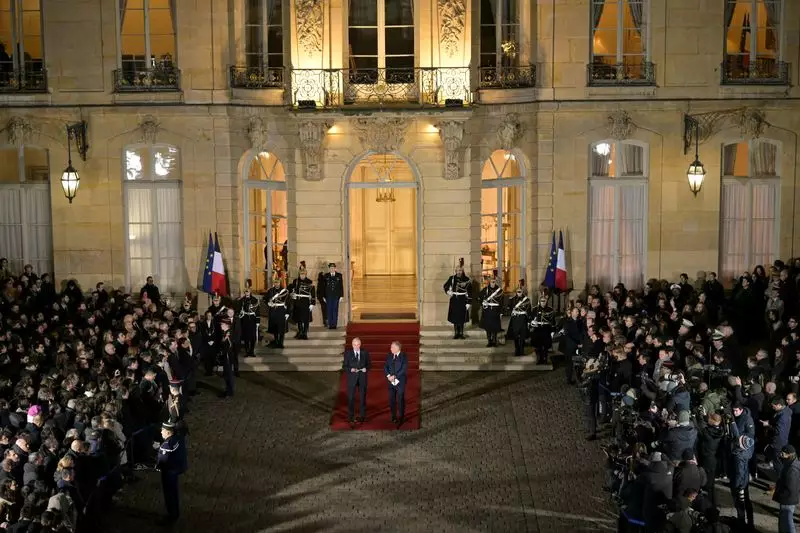Francois Bayrou, a seasoned centrist politician, has resurfaced in the spotlight of French politics as Prime Minister under President Emmanuel Macron’s administration. His trajectory in the political arena has not been without its complications. Whether it was his tenure as Education Minister in the 1990s, marked by protests sparked by proposed increases in subsidies for private schools, or his more recent appointment amid a fragmented parliamentary landscape, Bayrou’s political journey is fraught with challenges and contradictions.
Bayrou’s appointment comes at a time when the French parliament is characterized by division and dissent. As Macron’s fourth prime minister within a calendar year, his immediate challenge is to successfully navigate the legislative labyrinth to secure a budget for 2025. The first step involves assembling a cabinet that can command at least minority support in a chaotic political environment, where opposition exists not only from the far-right but also from various left-leaning factions. This necessitates a balancing act that may lead to a coalition, albeit a fragile one at best.
The recent ousting of Bayrou’s predecessor, Michel Barnier, shocked the French political establishment, particularly since it marked the first time since 1962 that a government was voted out by the parliament. In the wake of Barnier’s abrupt exit, a temporary cross-party consensus emerged aimed at ensuring continuous government funding, giving Bayrou a brief respite before diving into the contentious discussions surrounding the next fiscal budget.
One of Bayrou’s most pressing issues is the rising national debt, which he has candidly identified as a “moral problem.” Despite his recognition of the seriousness of France’s financial situation, maintaining harmony with trade unions, lawmakers, and other stakeholders will be an intricate task. Historically, attempts to push significant budgetary reforms have faced stiff opposition. Barnier’s downfall serves as a stark reminder of the perils that await any prime minister who attempts to leverage constitutional powers to bypass parliamentary votes.
In light of these realities, Bayrou faces enormous pressure. Economists, including those from JP Morgan, predict that curtailing fiscal demands from opposition parties could result in limited fiscal consolidation in the near future. As France’s credit rating takes a hit from agencies like Moody’s in response to political instability, the implications for the French economy grow even more nuanced.
President Macron’s approach has been to reach out to leaders across the political spectrum, from centre-right Republicans to the far-left. This broad appeal is indicative of the urgent need for coalition-building strategies in the face of aggressive opposition. However, Macron’s unwillingness to elevate representatives from traditional leftist parties into key roles reflects his commitment to reforms that have reshaped the economic landscape, including pensions and labor markets.
Such reforms have drawn fierce opposition from the far-right, led by Marine Le Pen’s National Rally. Bayrou’s leadership will be scrutinized against a backdrop of red lines established by Le Pen and her party, particularly regarding pension indexing and other social welfare issues. The political cost of either yielding to these demands or eliminating opposition could be substantial.
As Bayrou faces the dual challenge of economic recovery and social unrest, his government must tread carefully on the tightrope of fiscal responsibility and public sentiment. The need to reduce the budget deficit, projected at an alarming 6.1% for 2024, looms large. Additionally, Bayrou must address the volatile nature of trade unions whose protests could erupt over any perceived austerity measures.
Moreover, the ongoing geopolitical landscape, particularly with increased military spending to assist Ukraine amid ongoing tensions, further complicates Bayrou’s responsibilities as Prime Minister. Economic strategies that involve tax increases for affluent sectors or large corporations, as proposed by Barnier, seem increasingly untenable in light of current political dynamics.
Francois Bayrou’s re-entry into the prime ministership comes at a critical juncture for France. His ability to unite various factions while addressing the pressing concerns of economic health and public discontent will shape not only his legacy but also the future of French politics. The tight control over fiscal policies, coupled with an impending battle to protect important social reforms from undergoing radical modifications, lays bare the complexity of his leadership role. As the pieces continue to fall into place, Bayrou stands at the helm of a ship navigating through choppy political waters, a testament to the ever-turbulent landscape of contemporary governance.

